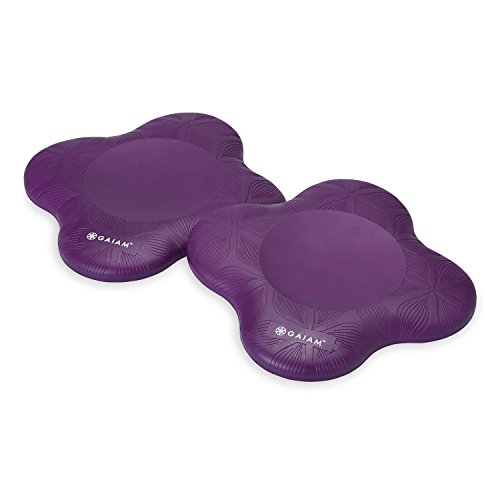No one likes being sick, but our body can react unfavorably to changing weather, infections, diseases, allergies, and other external factors that elicit an immune response from our body, such as sneezing or a stuffy nose. While it can sometimes be hard to ascertain the cause behind your sinus issues as the symptoms are quite similar, including sneezing, a runny nose, coughing, and even increased pressure in the face, the only way to diagnose your ailment is to see a doctor and focus on improving your overall health by maintaining a healthy diet to alleviate your symptoms. It is important to consume food items that can help the body regain its strength and boost your immune system to fight off any infection or allergies, which can set you on the path of healing to supplement the medication prescribed by your physician. If you’re looking to relieve your stuffy nose, we have a list of the best superfoods for sinus infections that you should check out and incorporate into your diet as they can speed up the recovery process.
What Is A Sinus Infection?
Before we get into the best superfoods for sinus infections, let’s first take a look at what exactly a sinus infection is. A sinus infection or sinusitis occurs when there is a fluid buildup in the sinuses or the spaces located near the nasal bones, which are connected with the nasal cavity. The main purpose of the sinus is to produce mucus that lubricates your nasal passage and protect the news from dust, dirt, allergens, microorganisms, and environmental pollutants that can cause harm to the body.
In case of infection, the sinuses flare up and produce excessive fluid that becomes the ideal breeding ground for germs while also causing congestion and a runny nose. The primary cause of sinus infections are viruses, but they can also be caused by specific bacteria and fungi. There are different types of sinus infections that can last between 2 to 12 weeks, but they can also last longer if it is a case of chronic or recurrent sinusitis. There are some pre-existing conditions that make you more likely to develop sinus infections, including swelling inside your nasal passage, blocked drainage ducts, nasal polyps, structural differences, and immune system deficiencies. While being sick at one point or the other is part of life, you can always incorporate a healthy diet and fitness regime to keep your body and immune system healthy to better deal with infections.

The 10 Best Superfoods for Sinus Infections
Onion
ASIN: B07QTZBZ2C
Onions are known for their anti-inflammatory properties, which assist in clearing out any congested sinuses. The vegetable contains a large amount of sulfur which is used as a homeopathic solution for sinus infections as it is supposed to relieve nasal congestion and coughing when used in a compound form of sulfur iodatum. This compound relieves severe flu or cold symptoms by targeting excessive mucus production while allowing the body to expel mucus which is the breeding ground for infections. Onions also contain allicin which is the source of its strong, pungent smell and is responsible for its antibacterial properties that can combat sinus infections and symptoms such as nasal congestion while also boosting immunity. Onions can be tricky to work with as inhaling onion fumes can cause eye irritation, which is why we recommend chopping the onions into pieces and boiling them to produce a tonic that can be inhaled or drunk while hot.
Garlic
ASIN: B07NR3LF35
Garlic is a plant with individual cloves grouped to form a bulb encapsulated in a papery covering. Many parts of the garlic plant can be used, including the stalks, but the main nutritional value comes from the bulbs. Garlic contains a substance known as allicin that has antibacterial, antifungal, anti-inflammatory, and antiviral properties, making it suitable to assist the body in managing its immune response. There are other health benefits of using garlic and including it in your diet as it is excellent for protecting the heart and fighting cold and flu symptoms. The antibacterial properties of garlic alleviate sinus infections by limiting mucus buildup in the nasal cavity, making it easier for your respiratory system to cleanse itself and expel disease-causing organisms. Garlic is also extremely easy to prepare as its delicious aroma can add an exciting tinge of flavor to any meal.
Ginger
ASIN: B0787TV4ZB
Ginger is an underground stem with a brown outer layer and a yellow center that has a unique fragrance. This spice is highly versatile, and it can be used in both savory and sweet items to add hints of warmth, freshness, and spice to any dish. Ginger tea is also a popular drink that can be brewed by boiling the spice in water. The drink is known to have anti-inflammatory and antimicrobial properties while also being rich in antioxidants. Ginger is used as a remedy for sinus infections, especially if the cause is seasonal allergies, as the stem is known to alleviate symptoms such as runny noses and congestion due to its antibacterial properties. It can be consumed by squeezing the juice from the stem, as an ingredient in different food items, or in tea form loaded with ginger extract.
Grapefruit
ASIN: B079DTKTR3
Grapefruit is a pink fleshy citrus fruit with a thick yellow or yellow-orange skin. Citrus fruits contain a treasure trove of antioxidants that keep your organs and systems healthy. Vitamin C is also a major component of the fruit. The vitamin is known to possess anti-inflammatory properties that can help your body fight off sinus infections and even reduce the duration of the infection. A popular way to use grapefruit is by purchasing grapefruit seed extract, which has antibacterial and antiviral properties. It is also used to treat fungi such as Candida Albicans. The grapefruit seed extract is used in treating sinus infections as there are nasal sprays available with the extract as a core ingredient, but it can also be used to flush out sinuses by mixing the extract with salt and boiled water to produce a solution that can be used to clean the sinus is by using a neti pot or squeeze bottle.
Honey
ASIN: B017TRQYJM
Honey is a golden-colored viscous liquid produced by bees, and while it is their primary source of sustenance, it is also known for being a rich source of nutrients and its healing properties. Manuka honey contains a compound known as methylglyoxal that has powerful antibacterial properties that can tackle bacteria causing sinus infections and reduce bacterial colonies in the nasal system. This remedy is better suited to chronic sinus infections caused by bacteria, and it might not be as effective against viral infections. Honey can be used to eliminate excess mucus in the nasal cavity as it calms the nasal passage and throat to keep any infections at bay by acting as a natural immune system booster that soothes the sinuses and helps your body on the road to recovery.
Water
ASIN: B074XVZLN8
Drinking plenty of clear fluids is included in every doctor’s prescription whether you’re dealing with an acute or chronic sinus infection, regardless of whether antibiotics are prescribed. Hydration is important for the body’s systems to function efficiently as even the diffusion between cells requires water to act as a medium of transferring energy to the areas of our body that need it. Water keeps you hydrated, and it can be used in a multitude of ways to reduce the effects of sinusitis. The mucus lining is maintained with proper hydration, and it can become excessively stuffy if there is not enough water to allow the mucus to flow out of your body. Your body can release some of the built-up mucus if you use a humidifier or do steaming to relieve the pressure in the nasal cavity. Additionally, you can also rinse your sinus using a neti pot or nasal spray that can clear out any excess mucus and eventually alleviate the sinus infection’s associated symptoms.
Pineapple
ASIN: B08332J6N5
Pineapple is a tropical fruit that pairs well in mixed fruit drinks, but it can even be consumed as a solitary juice. The fruit also goes great in desserts such as upside-down pineapple cakes and even certain salads. The sweet and tangy fruit is loaded with antioxidants and vitamin C, an excellent immune system booster that also contains anti-inflammatory properties. However, the main constituent of pineapples that make it so good for alleviating cold and flu symptoms is the enzyme bromelain which breaks up coagulated mucus in the sinus is while also reducing inflammation and swelling. The enzyme also reduces the body’s mucus production, especially if the symptoms are caused due to allergies.
Pumpkin Seeds
ASIN: B07XNFMSCS
Pumpkin seeds are found in the core of pumpkins, and they are an excellent source of omega-3 fatty acids and magnesium, both of which reduce inflammation in the body as they produce a relaxing effect on our blood vessels. Pumpkin seeds are also high in vitamin E and zinc, which further reduce the symptoms of cold and flu. These nutrient-rich seeds also reduce sinus swelling pause due to allergies and allow mucus to green effectively through the nasal passage, preventing congestion. Pumpkin seeds can be eaten as a snack on their own, or they can be incorporated into salads or sprinkled on top of bread for a light yet nutritious meal.
Horseradish
ASIN: B07DRJ76KN
Horseradish is a spicy root typically used in condiments, but it also has certain health benefits associated with its high mineral and nutrient content. The root is a rich source of vitamin C, dietary fiber, folate, potassium, magnesium, zinc, calcium, and manganese, making it a superfood containing enzymes and oils such as sinigrin, which is a potent glucosinolate. Horseradish can reduce inflammation and stimulate the immune system, including the nasal passages, while also preventing congestion due to mucus in the upper respiratory tract passages.
Turmeric
ASIN: B01CRXAYH6
Turmeric is a yellow-colored spice that is known to possess beneficial anti-inflammatory properties that allow the plant to be used for numerous medicinal benefits. The spice contains compounds known as curcuminoids that can cure a number of ailments, including cholesterol and hay fever. The anti-inflammatory properties of turmeric make it ideal for treating congested nasal passages. The simplest method of consuming turmeric is by seeping the spice in hot water, and you can even add a squirt of lemon to freshen the drink up. Alternatively, you can also gargle the drink to clear up the congested sinuses if you don’t prefer to drink the tea.
Our Final Thoughts
Sinus infections are typically viral or caused due to allergies which means there aren’t many sinus-related infections that can be solved by using antibiotics. This infection needs to run its course, but there are food items you can consume to speed the process along. If you’re suffering from a sinus infection, you can alleviate your symptoms by including carefully selected superfoods into your diet that act as a source of minerals, nutrients, and vitamins that can strengthen your body’s immune system and healing mechanisms.
Our list of the best superfoods for sinus infections ensures there are options suitable for different sinusitis-related symptoms you hope to ease, and you can even use multiple items to help your immune system fight the symptoms and infection so you can be healthy in no time. While superfoods can improve your body’s healing, it is still recommended to have a doctor diagnose your symptoms to ensure there isn’t a more serious underlying health issue causing your sinus infection.
















